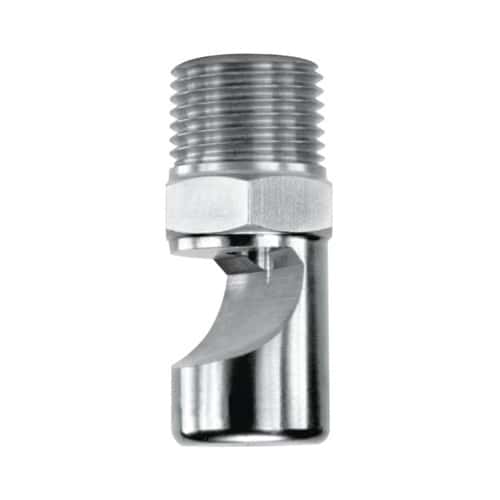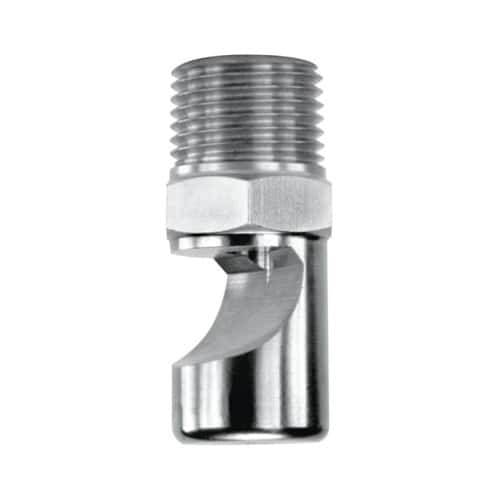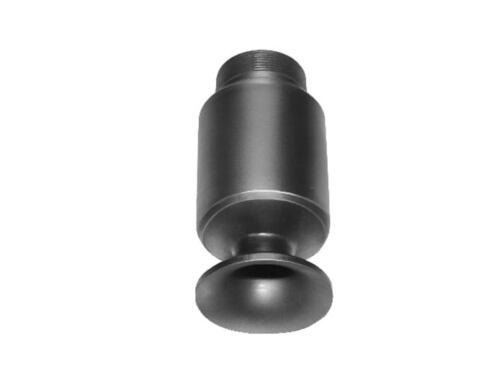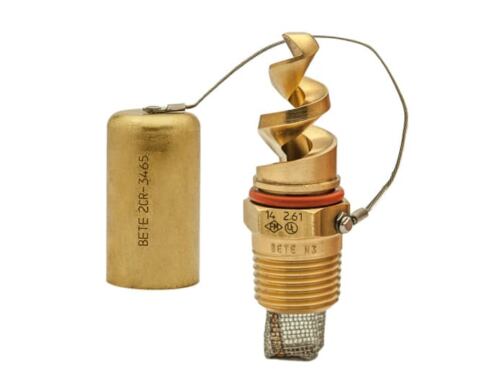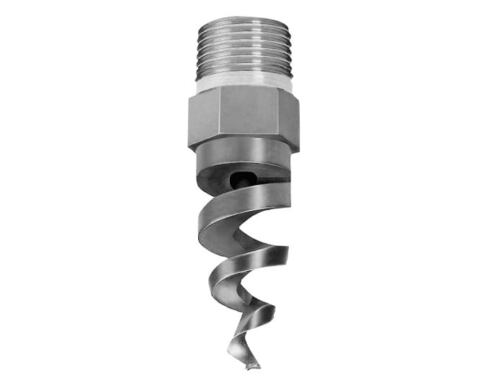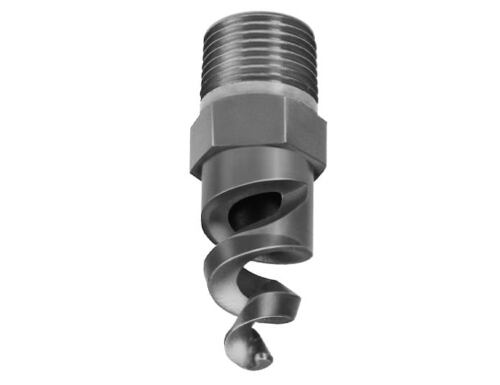Open-type water spray protection systems are typically designed per NFPA 15 or similar design standards and are acceptable for the protection of hazards involving; flammable or combustible materials, electrical hazards, propellants, pyrotechnics, and similar life/safety situations. Open-type deluge nozzles and systems typically maintain dry supply piping and the use of heat, smoke, or flame detection equipment to open a deluge valve which supplies water and pressure to the nozzle for operation.
There are three general categories for deluge applications:
- Direct Extinguish: Water is sprayed directly onto the flames to control the blaze and extinguish the fire. Commonly used in emergency situations.
- Flame Control: Water is sprayed to control the spread of a fire but not extinguish it. This is commonly used in gas leak situations where the gas continues to be consumed by the flame until the flow of gas can be turned off. Extinguishing these types of fires before turning off the gas flow can allow a build-up of flammable gas that can lead to an explosion.
- Cooling: Water is sprayed onto the exterior surface of vessels that are under pressure and/or contain volatile materials. The water keeps the contents cool thereby preventing the contents from increasing in pressure. Commonly used in tank farms and on any vessel where catastrophic failure might occur from overheating.
Common open-type deluge nozzle uses and industries:
- Directly extinguishing flames in emergency settings
- Controlling flames near gas leaks
- Railway transfer stations
- Steel industry foundries
- Automobile tunnels
- Fuel and flammable liquid storage tanks
- Combustible material storage areas
- LNG facilities
- Refineries
- Chemical plants
- Aircraft hangers
- Transformers
- Electrical cable trays/runs


